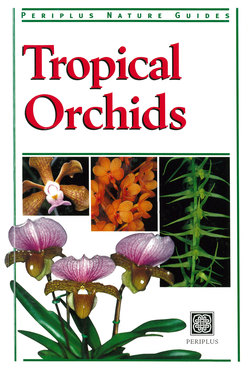Читать книгу Tropical Orchids of Southeast Asia - David P. Banks - Страница 7
На сайте Литреса книга снята с продажи.
ОглавлениеAerides
The name Aerides literally means air-plant. About 20 species belong to this genus of monopodial epiphytes. Many of these sturdy plants are found in the warm lowlands of-the tropics. Most species are easy to grow and have highly perfumed flowers, which has made them popular in horticulture. Aerides odorata is variable in colour, from deep pink to pure white, and is widely distributed throughout Southeast Asia. Albinistic or white-flowered forms of these species are highly prized by collectors. Aerides quinquevulnera is from the Philippines and New Guinea and has waxy pink, spotted to deep purple flowers which can last for over a month in pristine condition. Aerides rosea, from northern Thailand, was formerly well known as Aerides fieldingii. It has long, pen-dent inflorescences of lolly-pink flowers, with some darker spotting on the petals. Aerides species are frequently cultivated, attached to the trunks of trees which will not shed their bark. In optimum conditions, the thick white roots will attach firmly to the host and ramble quite a distance from the plant.
Many hybrids have been made between Aerides and other members of what are loosely termed the "vandaceous" family. Such combinations include Aeridocentrum (x Ascocentrum), Aeridopsis (x Phalaenopsis), Rhynchorides (x Rhynchostylis) and Aeridovanda (x Vanda). The genus Christieara is a three-way hybrid involving Aerides, Ascocentrum and Vanda. Many of these hybrids come in a wide range of colours due to the high degree of genetic diversity. They also have long-lived flowers, a trait which has made them popular as cut flowers and as flowering pot plants. Some of the other Aerides species in cultivation include A. lawrenciae (which is like a giant A. odorata), A. crassifolia (a fleshy plant with large purple flowers), A. krabiense (deep mauve flowers), the lilac and cream A. falcata, and its close relative A. houlletiana, which has yellow, white and purple blooms.
Aerides odorata var. alba
Aerides quinquevulnera
Aerides rosea
Aerides quinquevulnera var. purpurata
Amesiella and Ascocentrum
Amesiella
The Philippine species Amesiella philippinensis was known for many years as Angraecum philippinensis. The genus Angraecum is actually restricted to Africa and Madagascar. There are two species in this monopodial genus, with a second species recognised in 1998. Both species are epiphytes which have short spikes bearing up to five disproportionately large crystalline white flowers. Amesiella philippinensis has a prominent yellow blotch on the labellum and occurs at lower altitudes. The more robust Amesiella monticola has larger pure white flowers complete with a differently-shaped, three-lobed labellum and longer spur. This spur is filled with nectar to attract its pollinator, which is probably a moth since the flowers are fragrant at night.
Ascocentrum
The monopodial genus Ascocentrum is a group of small, compact plants consisting of less than ten epiphytic species which have played an important part in the development of vandaceous hybrids. Ascocentrum has been bred with members of the genus Vanda to create the artificial genus Ascocenda. The Ascocentrum has helped introduce bright colours to its progeny, while also reducing the plant size.
Ascocentrum ampullaceum has round, glowing purple flowers and often flowers profusely. Recently, a very rare pure white clone of the species was discovered. White-flowered forms of coloured orchids always demand high prices due to their scarcity. Numbers can be increased by division of older plants, seed and tissue culture. Plants produced by tissue culture, called mericlones, are genetically identical to the parent plant, whereas seedlings may display variation in colour and form. The bright orange Ascocentrum garayi is a popular plant in its native Thailand. For years this species has been confused with the related Ascocentrum miniatum. The miniature Ascocentrum pumilum is endemic to Taiwan.
Ascocentrum ampullaceum
Ascocentrum garayi
Ascocentrum ampullaceum var. album
